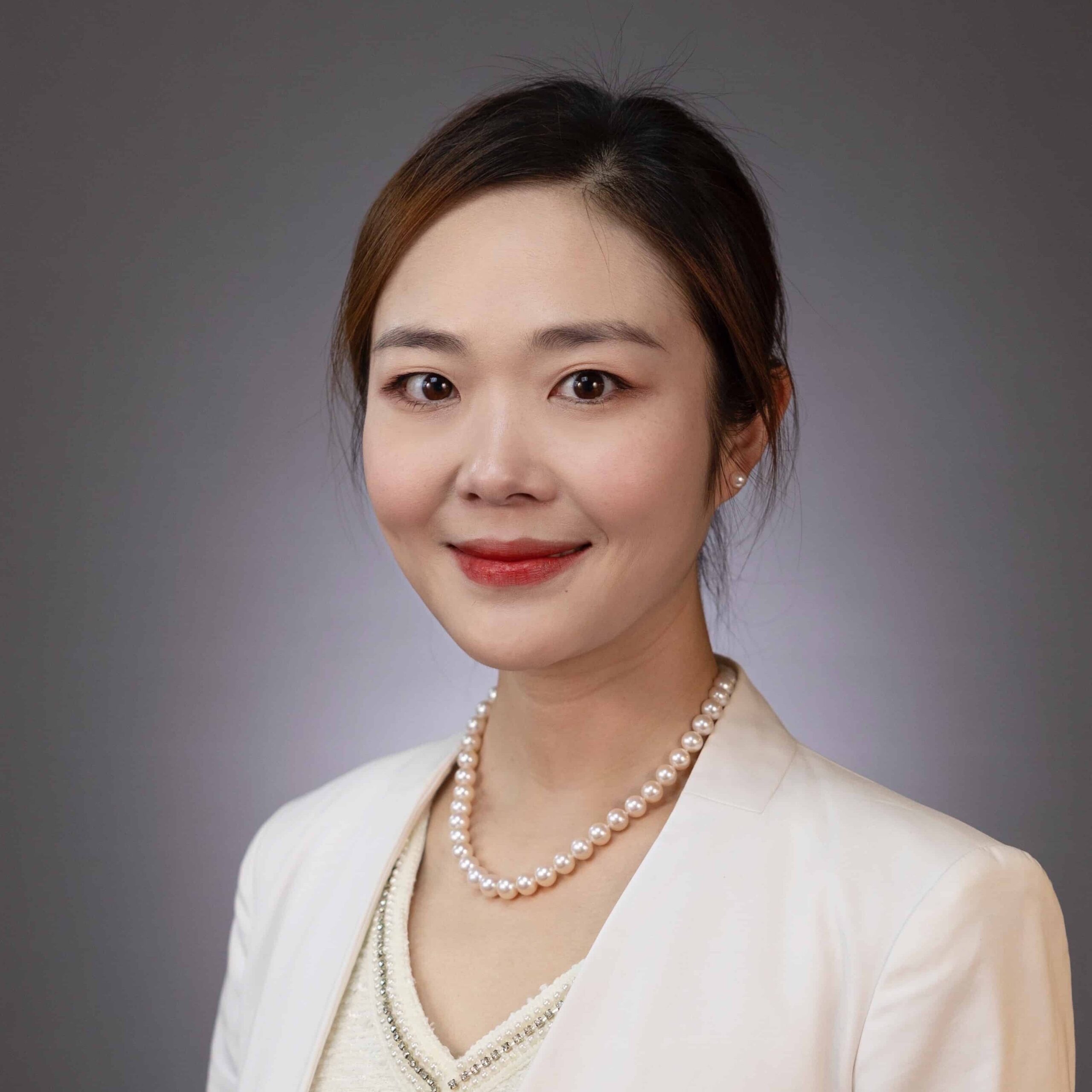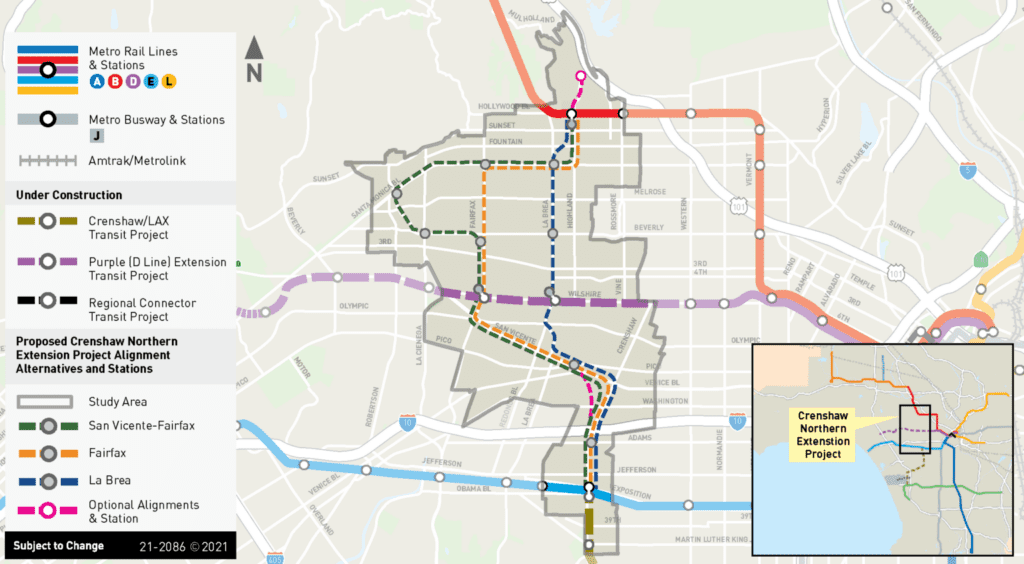Highlights
- Price School alum Lynn Feng was named to Mass Transit magazine’s “40 Under 40” list of emerging leaders.
- The Master of Planning graduate works for infrastructure giant AECOM, where she consults on transit projects around the world.
- She advised the LA28 Olympics organizing committee on mobility planning for the 2028 Summer Games.
As planning manager at infrastructure giant AECOM, Lynn Feng gets to work on some pretty high-profile projects. She consulted on mobility solutions for the 2028 Olympics, helped transit agencies navigate the pandemic, and even advised the Saudi Arabian government as it builds a city from scratch in the desert.
One project, though, is especially interesting to Feng, even if it’s not as well-known. That’s because it’s close to home.

Feng, a USC Price School alum who earned a master’s degree in planning back in 2016, is helping Los Angeles Metro fill a major gap in its rail network. Called the Crenshaw Northern Extension (CNE), the project would extend the Crenshaw/LAX light rail line north to Mid-City, West Hollywood and Hollywood.
For Feng, the rail line would provide a direct ride from her home in Koreatown to Hollywood, where she often meets friends and attends events.
“Working on projects like CNE that are closely related to my daily life gives me so much joy as I feel I’m actively doing my part to improve the life quality of people living in my neighborhood,” Feng said.
Born and raised in Urumqi, China, Feng is helping solve vexing mobility problems in her new home of L.A. and around the world. Her work is getting recognized, too. She was recently named to Mass Transit magazine’s 40 Under 40 list of emerging leaders in the transportation industry.
“I love this industry more every day as I learn more about it and get better at what I’m doing,” Feng said.
The veins of a city
Feng sees transportation as a crucial aspect of urban planning that affects people’s daily lives. Residents can’t leave their homes for work or school without some means of transportation, whether that’s on foot, by bike, in a car or aboard a bus or train. “If you consider a city more like an organic body, then transportation is really the veins,” Feng said.
Feng has called L.A. home since moving roughly 7,000 miles in 2014 to study at the USC Price School. She interned at L.A. Metro and continues to work on city projects at AECOM. She notably advised the LA28 committee during the bidding process for the 2028 Summer Olympics. To prepare for the swarm of sports fans and athletes, she proposed expanding transit service and leveraging remote work options to keep some residents home and ease the potential stress on the city’s transportation system.

Feng has also helped city and state agencies navigate challenges exacerbated by the pandemic, like service disruptions and reduced ridership on public transit. For example, she is advising the Chicago Metropolitan Agency for Planning (CMAP) on ensuring social equity is considered in new policy decisions post-pandemic.
“In COVID times like this, a certain route might not have that high of a ridership,” she noted. “But it might be very important for certain disadvantaged communities. This could be their lifeline. Agencies like CMAP are beginning to understand the importance of looking beyond a performance-based system planning method going forward.”
From focused student to transportation leader
Feng was a focused student who worked hard to understand U.S. culture, the labor market and transportation industry, said James Moore, a USC Price School emeritus professor who specializes in transportation. Moore said Feng joined professional societies like the WTS, formerly known as the Women’s Transportation Seminar, which has helped USC students network with prospective employers.
Feng is now a WTS board member and helps USC students get involved in WTS functions.
“She was particularly deliberate about trying to understand how she could conduct herself stateside and compete effectively, and she was successful in doing that,” Moore said.
Feng credits the USC Price School and the Trojan family of alumni for helping with her career. Problem-solving skills are especially important as a consultant, and the USC Price School provided valuable training to keep her mind sharp and flexible, she said. Because fellow Trojans know first-hand about the quality of the school’s professors and programs, many seek its students for new jobs or internships, she added. That includes the AECOM manager—a USC alum—who hired her.
Then there’s the wide breadth of courses, professors and perspectives Feng learned from at the USC Price. School That provided a broad understanding of the transportation industry, helping Feng find her passion and strengths.
The USC Price School, she said, “helps you figure out what your interests actually are and what you’re good at.”
